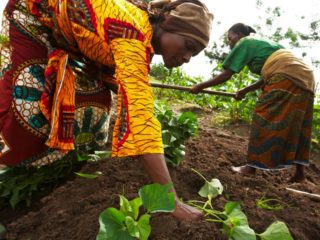Ijewere says Land Use Act hinders commercial farming
Dr. Emmanuel Ijewere, Coordinator
and Vice President of Nigeria Agribusiness Group (NABG), has said the
controversial 1977 Land Use Act does not really constitute a major disincentive
to farming in the country since between 85 to 90 per cent of farmers in the
country are small holders who operate mainly on family land holdings.
Ijewere said the Act, however, is
a major hindrance to successful commercial farming in the country because it
makes freehold ownership of land impossible and only allows leases of 99 years
for non-family ownership of land in the country.
The NABG boss who gave the
explanation recently while speaking as a guest at the monthly forum of Nigeria
Association of Agriculture Journalists (NAAJ) in Lagos said the Land Use Act was
intended to make land accessible for development but it has been subjected to
abuse by some people in government.
He disclosed that a commission
has been set up to review the Land Use Act as part of an effort to dilute the
power of state governors and encourage commercial farming across the country.
He said: “The Land Use Act is not
the major source of disadvantage to agriculture, it is important to reform the
Act. It is important to make it easier. It is important to take it out of the
hands of one man in a state who can give it out as he pleases, It must be
guided by principles.
“For the vast majority of farmers
in Nigeria, their main problem right now is not land but market for their
products, input, logistics and how to preserve their products.”
He added that since Nigeria is
now self-sufficient in cassava production, NABG is working with the government
to ensure that end products like ethanol, sugar and renewable energies in the
value chain are properly harnessed.
Ijewere , who is also a member of the National Economic Forum,
attributed the leap in rice production to favourable agriculture policies by
the government that have also encouraged local producers of tomatoes and palm
oil, among other farm produce. “Now almost all the states in the country grow
rice. The revolution in agriculture is no longer the type we use to have in the
80s and 90s. It has changed. As at today, we believe that at the rate we are
going, Nigeria should be able to export rice by end of 2018.”




Comments
Post a Comment